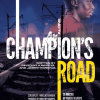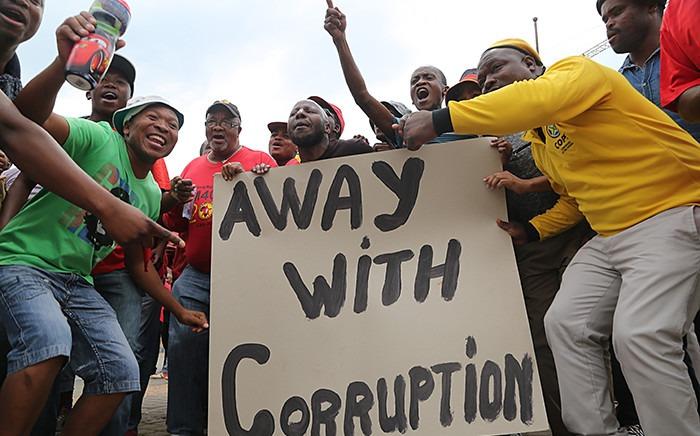By Andrew Besi
Not many Ugandans I have interacted with know of William Winwood Reade’s collection of aphorisms published in 1872 as The Martyrdom of Man. This one book perhaps influenced Cecil J. Rhodes more than any other.
One of its most relevant suppositions is: “Trade is the great engine of progress, empire is a necessary condition of trade, egalitarianism and liberal national sympathies a waste of time.”
At his death in 1902, Cecil Rhodes was a millionaire many times over and his company De Beers remains a dominant mining company in Africa and the world. His dream to “seize every opportunity of acquiring more territory” never left him. Indeed, Rhodes’ wealth was put to efficient use by Alfred Milner and Nathan Rothschild in the promotion of the ideal that “more territory simply means more of the Anglo-Saxon race, more of the best, the best human, most honorable race the world possesses.”
Indeed, this skewness of thought is partly why Pixley Ka Isaka Seme, by his own admission, went to Columbia University in New York City, graduating in 1906. By being at the “cynosure of all American life”, Pixley desired to understand the intricacies of ‘empire politics’ and International trade such that he would be able to spearhead political efforts in South Africa to liberate Africans from the indignity of being simply treated as “hewers of wood and drawers of water”!
It is to Pixley Ka Isaka Seme, and the ideologically sound revolutionaries Ahmed Sekou Toure, Eduardo Mondlane, Amilcar Cabral, Mwalimu Nyerere, Samora Machel, Kenneth Kaunda, Agostinho Neto, Patrice Lumumba, Walter Rodney, Frantz Fanon, Emperor Haile Selassie among others that we owe the total liberation of Africa from rule by Colonialists and Settler minorities.
The British were not alone in carving out vast chunks of Africa for themselves. Indeed, before the British, the Portuguese had been on our Atlantic ocean coastline since 1418. The Dutch permanently settled themselves in South Africa in 1652.
The French first arrived in Senegal in 1626. The same Senegal from which in the 11th century, the armies of the Almoravid dynasty had launched themselves against the Strait of Gibraltar to reinforce Islam in the Iberian peninsula.
However, Independence for most of Africa, did not yield the promised dividend. Despite some colonies inheriting fairly well-off economies, by 1970 one-party authoritarian states dominated our continent. These one-party states more often than not enjoyed the tacit backing of former colonial masters and had come to power through military coups. Mobutu was the instrument used by the Belgians, French, and Americans to snuff the life out of Lumumba. Bokasa had the backing of the French etc.
Regardless, Africa fought on. An example was the 1970 Portuguese invasion of Guinea Conakry. The Portuguese sought to remove Sekou Toure from power and capture Amilcar Cabral leader of the Guinea-Bissau Cape Verde political movement the African Party for the Independence of Guinea and Cape Verde (PAIGC). Sekou Toure and Cabral triumphed.
Despite exploits such as these, Africa, possessing more known natural resources than any other, remains the poorest continent on the globe. Why?
Surely we can not lay the entirety of the blame for the coups in West Africa at France’s doorstep! Similarly, we can not blame colonialists for our failure to realise the universal socio-economic transformation of all Africans.
Indeed, recent military takeovers have been driven predominantly by domestic considerations. For instance, in Niger, it was President Bezoum’s plans to reform the military high command that triggered his removal.
In Uganda, it was Mr.Obote’s plan to remove Idi Amin from a position of power within the Uganda National Army that triggered Amin’s coup. He was of course supported by the British who felt that their 'influence' over Uganda was threatened by Obote’s “move to the left.”
In all cases, politics in Africa has since 1960 mostly degenerated into a system rewarding small cliques of corrupt political elite. Seldom has politics evolved to a higher state than Amilcar Cabral or even Thomas Sankara espoused.
It can be argued that Corruption flourishes in Africa because of balkanisation into small unviable States, most with borders that do not make ethnic or geographical sense. I am inclined to agree with President Nyerere that many of our post-independence leaders favored balkanisation and its attendant corruption because “too many of us (African presidents) had a vested interest in keeping Africa divided.”
In other words, many of Africa’s leaders have never realised that “empire is a necessary condition of trade” and that “liberal national sympathies” are not indicative of democracy.
In the 60 years since African countries gained Independence, African leaders and their cronies have embezzled, by some estimates, upwards of USD50bn per year since 1960.
This penchant for illicit money is what, in my view, is the cause of all of Africa’s coups. A 2019 Global Corruption Report stated: “Several Chinese companies…have been accused of bribing senior government officials in Chad and Uganda, Zambia and Kenya respectively.”
A 2020 UNCTAD report went further claiming that Africa loses more than “$89bn a year in illicit financial flows such as tax evasion and theft, amounting to more than it receives in development aid.” The result of all this corruption, according to UNCTAD’s Secretary General Mukhisa Kituyi, is that “illicit financial flows rob Africa and its people of their prospects, undermining transparency and accountability and eroding trust in African institutions.”
Most crucial, it is corruption that the neo-colonial elements, themselves caught up in a tri-polar geopolitical contest, exploit to weaken our security. Without security, and weakened from the resulting internal political strife, these neo-colonial elements come to believe that “Africa is still lying ready for us, it is our duty to take it.”
Corruption is the great atrocity of our time.







Comments